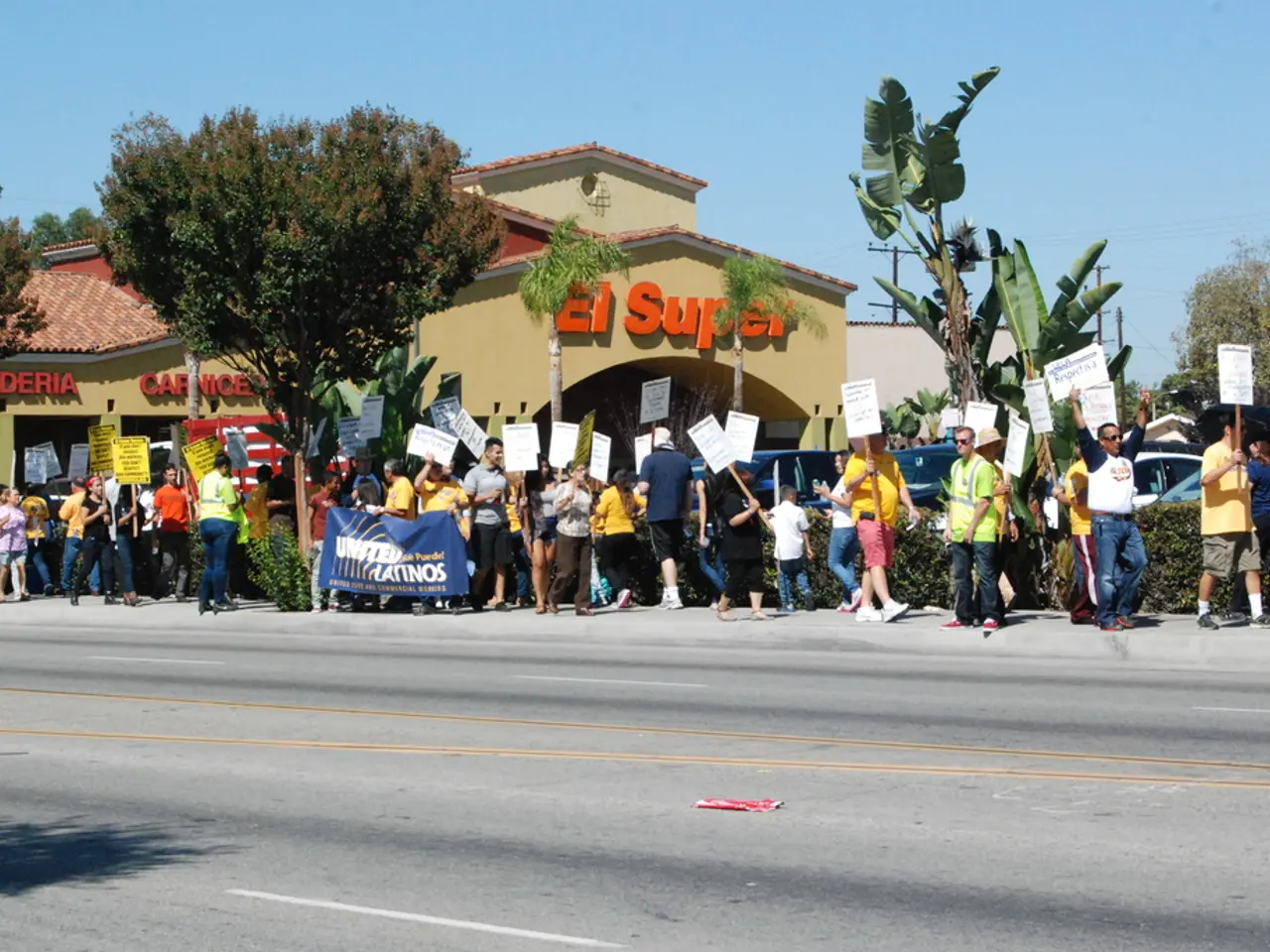Chronicles of Decentralization: Upholding the Authenticity in Community Administration
In the ongoing journey of local government reform, devolution plays a pivotal role in shaping the future of public services. Here's how local authorities can effectively engage residents and staff, ensure continuity of services, and implement digital transformation to improve public services.
**1. Empowering Frontline Councillors and Clear Accountability**
Reforms in local government are focusing on creating fewer but more empowered councils, with frontline councillors who have clear accountability to residents. This empowers local people to raise issues directly with councillors who have the mandate and means to act promptly, ensuring responsiveness and visible improvements in local services.
**2. Inclusive and Coordinated Stakeholder Engagement**
Successful devolution requires councils to engage a wide range of stakeholders systematically, including the NHS, police, education leaders, employers, town and parish councils, and voluntary sector groups. Engagement should be transparent, consistent, inclusive, and accessible to reflect diverse community voices and build shared understanding of reforms.
**3. Streamlined Governance and Devolution of Powers**
Devolution reforms aim to simplify structures into uniform unitary authorities supported by strategic authorities acting as ‘place leaders.’ This allows for strong, reformed public services delivered closer to the community with more local decision-making freedom. Strategic authorities coordinate across economic areas to drive growth and manage transport and public services holistically.
**4. Ensuring Continuity of Services**
The government is investing significantly in foundational services, such as children’s social care, to stabilize and reform critical areas as part of the wider devolution programme. By integrating community engagement into core local government functions and adopting preventive and early intervention approaches, authorities can maintain service continuity while evolving.
**5. Implementing Digital Transformation**
Digital transformation supports improved public services by enabling local government to engage residents more effectively, streamline service delivery, and innovate place-based solutions. Devolution provides an opportunity for local leaders to tailor digital tools and infrastructure investments for their specific community needs, fostering innovation and responsiveness.
By combining these strategies, local authorities can drive visible improvements, ensure service stability, and harness digital innovation to enhance public service outcomes throughout devolution and local government reorganisation.
Recent examples of successful devolution include the North Yorkshire Council, established in 2023 following a devolution deal, and the York and North Yorkshire Combined Authority, introduced in 2024. These authorities have implemented digital solutions like govService, a digital forms and services solution, to enhance interaction with residents during the devolution process.
In conclusion, devolution offers a transformative opportunity for local authorities to thrive and use it for service transformation to roll out next-generation public services. By adopting a combination of empowered governance, inclusive engagement, strategic planning, and digital innovation, local authorities can strengthen trust between local authorities and residents, ensuring a smooth and successful devolution process.
1. Local government policies should foster innovation by empowering councils to utilize digital tools and adapt technologies according to specific community needs.2. Collaboration between local government, policy-and-legislation, and other stakeholders such as politics, health services, education, businesses, and local communities is essential for effective devolution planning and implementation.3. In the general news, the success of devolution in regions like North Yorkshire can be attributed to their focus on digital transformation, ensuring services are responsive, accessible, and efficient, ultimately benefiting local residents.






